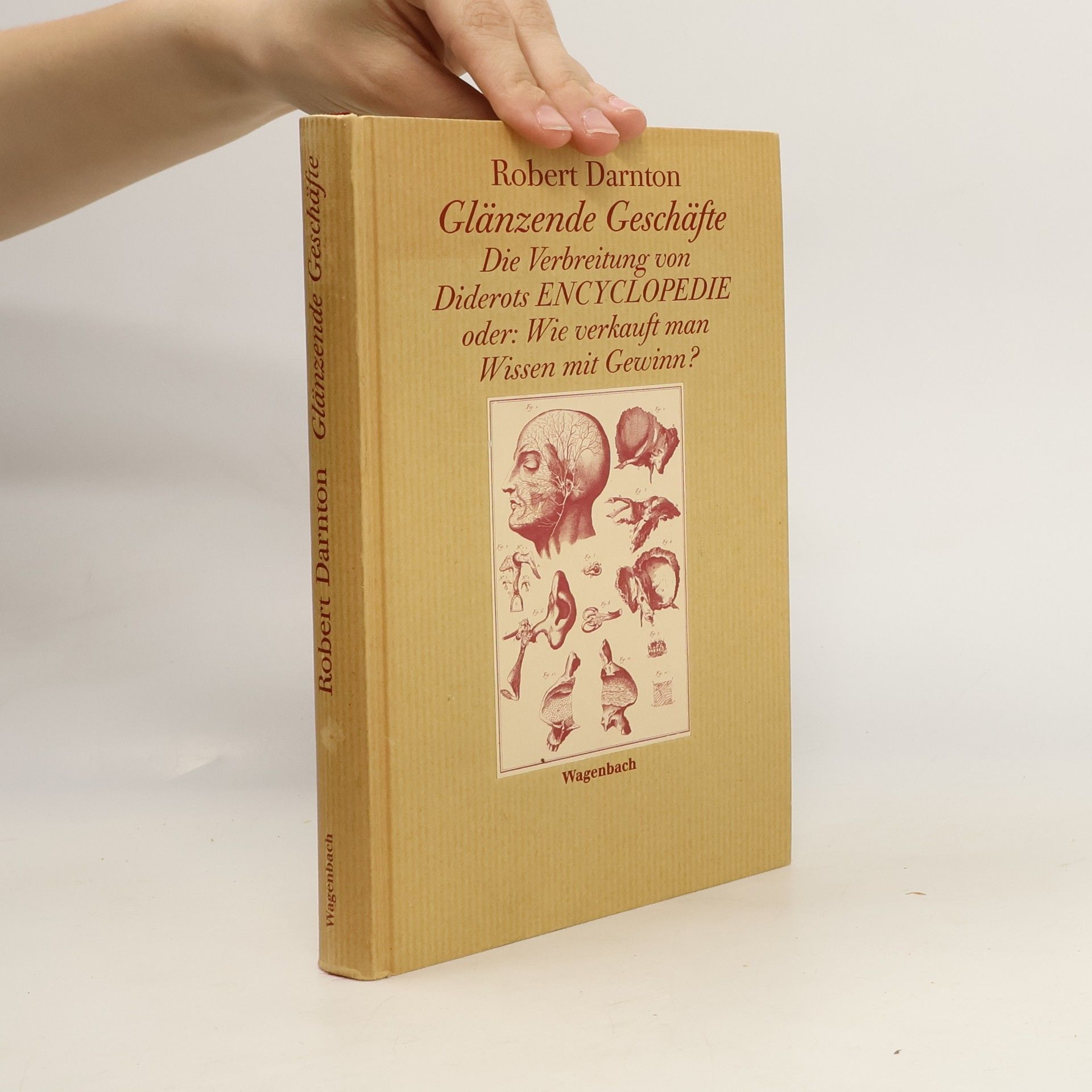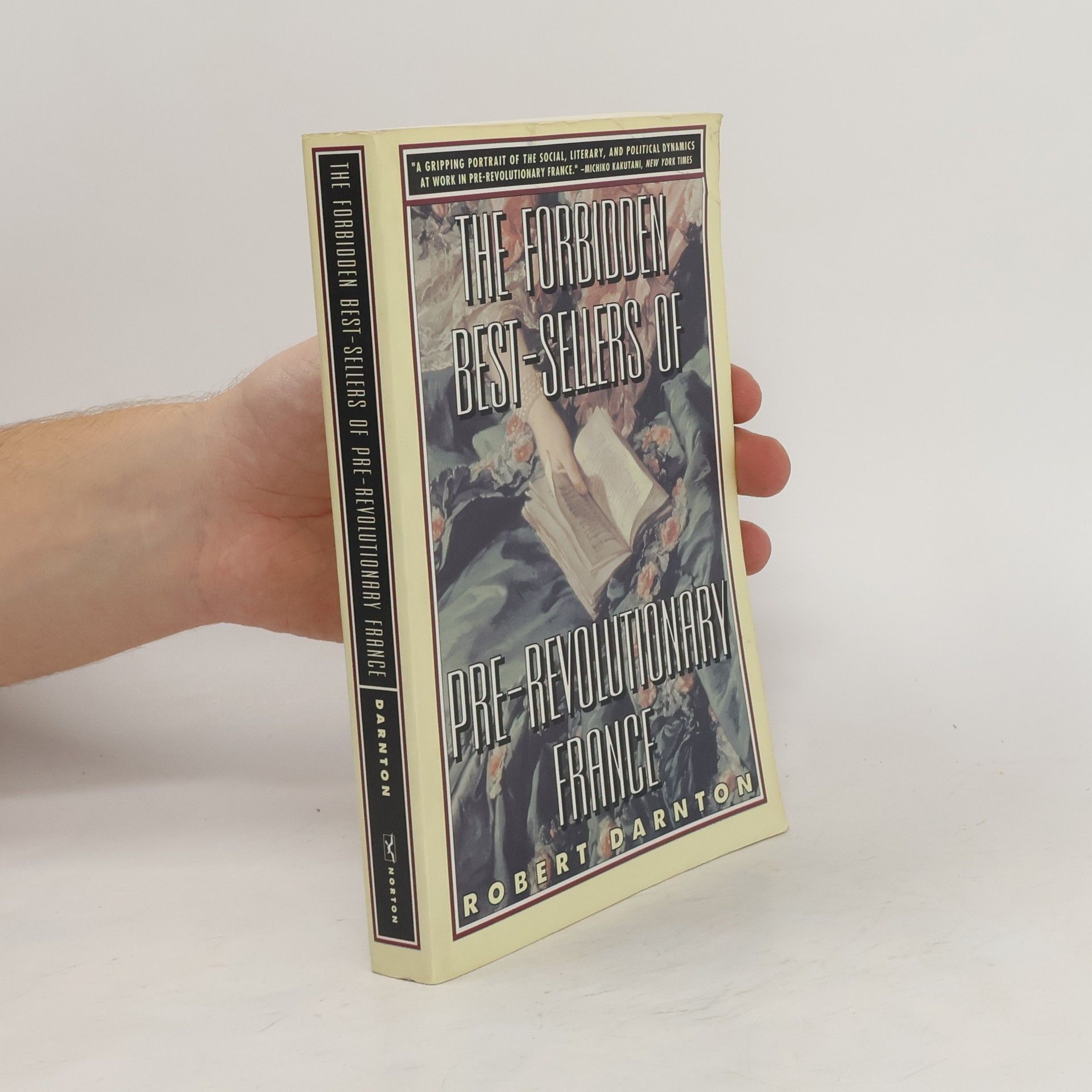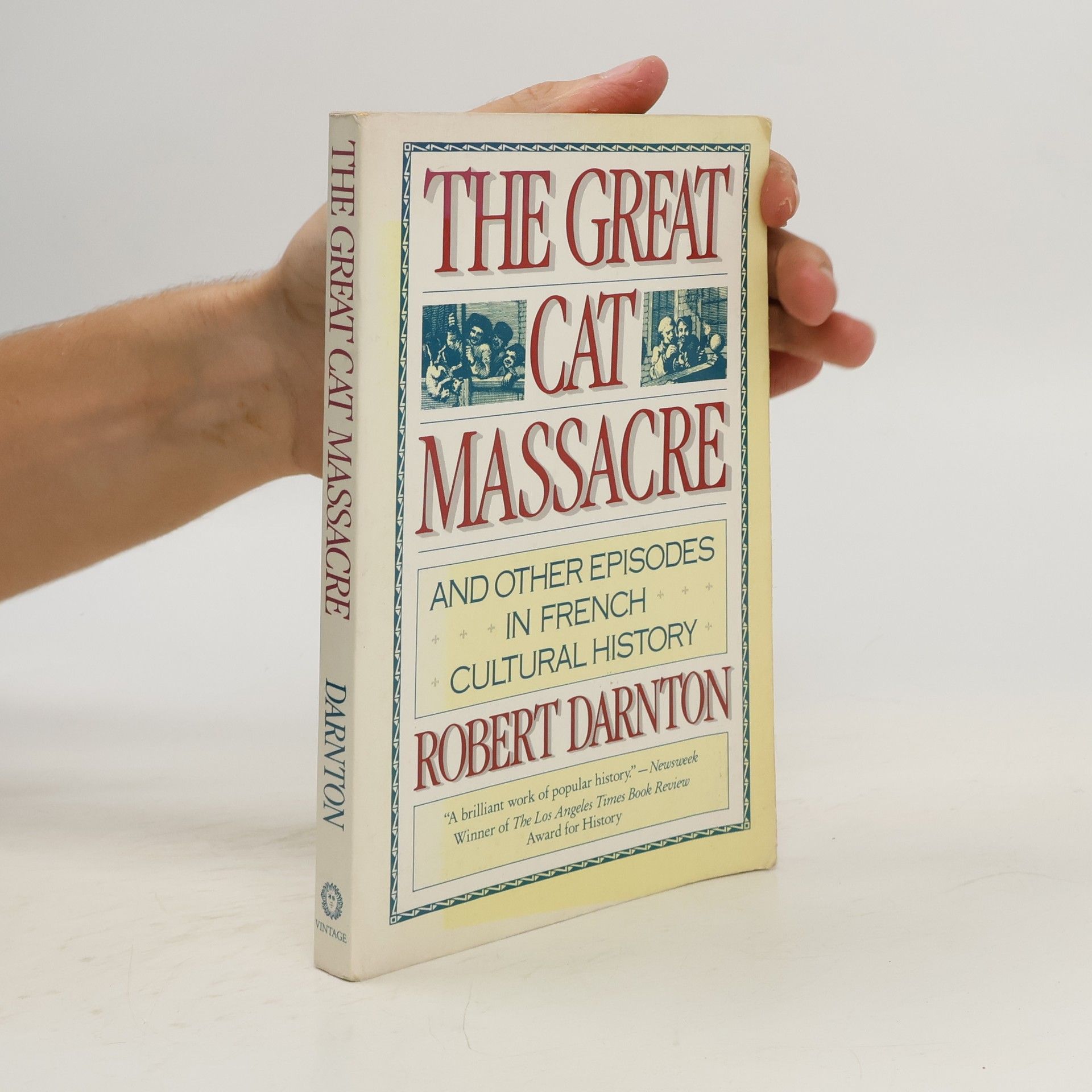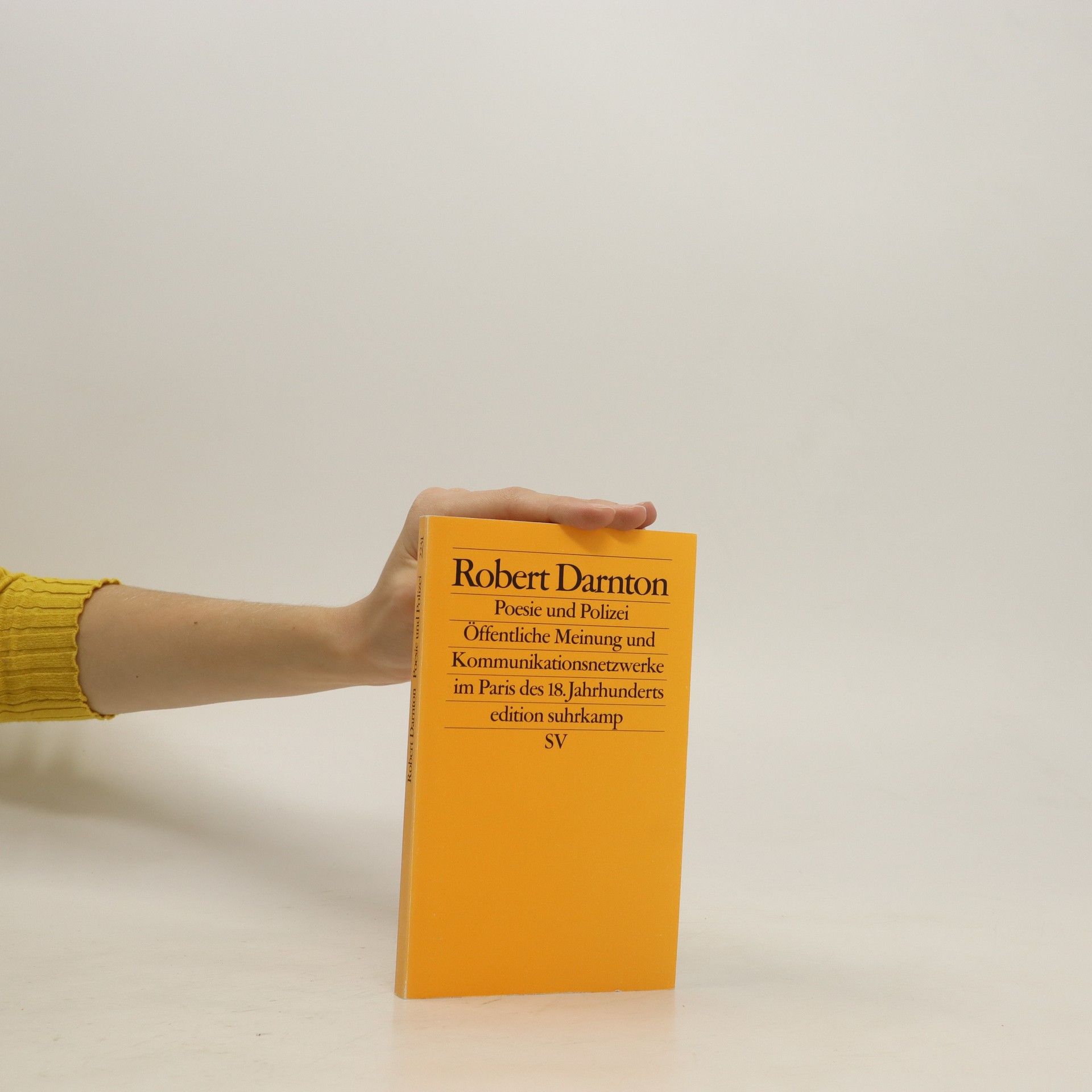When the apprentices of a Paris printing shop in the 1730's held a series of mock trials and then hanged all the cats they could lay their hands on, why did they find it so hilariously funny that they choked with laughter when they reenacted it in pantomime some twenty times? Why in the 18th century version of "Little Red Riding Hood" did the wolf eat the child at the end? What did the anonymous townsman of Montpelier have in mind when he kept an exhaustive dossier on all the activities of his native city? These are some of the provocative questions Robert Darnton attempts to answer in this dazzling series of essays that probe the ways of thought in what we like to call "The Age of Enlightenment."
France et CultureSéries
Cette série plonge dans la riche tapisserie de la culture française, explorant son art, sa littérature, son histoire et sa cuisine. Découvrez les traditions uniques, les mouvements intellectuels et les changements sociétaux qui ont façonné la nation. Chaque volume offre une exploration captivante de différentes facettes du patrimoine français. Découvrez ce qui rend la culture française si fascinante et influente à l'échelle mondiale.






Ordre de lecture recommandé
The Devil in the Holy Water, or the Art of Slander from Louis XIV to Napoleon
- 552pages
- 20 heures de lecture
The exploration of scandalous literature in eighteenth-century France reveals how libelers challenged the authority of the Old Regime. Robert Darnton delves into the vibrant lives of these figures, illustrating their impact on the ideological shifts that paved the way for a more radical political culture during Robespierre's era. This examination highlights the interplay between literature and politics, showcasing how dissenting voices contributed to the transformation of French society.
The Forbidden Best-sellers of Pre-revolutionary France
- 468pages
- 17 heures de lecture
Robert Darnton's work is one of the main reasons that cultural history has become an exciting study central to our understanding of the past.
Glänzende Geschäfte
- 363pages
- 13 heures de lecture
Literaten im Untergrund
Lesen, Schreiben und Publizieren im vorrevolutionären Frankreich
Robert Darnton führt den Leser in die dunkle, auch von der Wissenschaft bislang nicht ausgeleuchtete Welt der Raubdrucker, Hinterstubenverleger, Schmuggler und Polizeispitzel, die sich als literarischer Untergrund hinter der Fassade der Aufklärung gebildet hatte. So machen wir Bekanntschaft mit abenteuerlichen Autoren, die in Paris rechtswidrige Literatur produzierten, und mit den Druckern und Buchhändlern, die diese Literatur heimlich herstellten und vertrieben. Diese Literatur versorgte die Leser überall in Frankreich mit aufrührerischen Ideen und Ideologien. Robert Darntons Arbeit liest sich wie eine detektivische Spurensicherung, die ein Stück Kultur- und Literaturgeschichte beleuchtet.
Exploring the interplay between history and culture, this collection of essays spans topics from the 18th to the 20th centuries. It includes captivating anecdotes, such as a 1792 incident in the French Legislative Assembly, and offers insights into media, the publishing world, and the history of books. Darnton also delves into intellectual history and examines the connections between history, literature, anthropology, and sociology. His engaging writing style makes complex themes accessible and thought-provoking.
The Great Cat Massacre
- 320pages
- 12 heures de lecture
When the apprentices of a Paris printing shop in the 1730s held a series of mock trials and then hanged all the cats they could lay their hands on, why did they find it so hilariously funny that they choked with laughter when they reenacted it in pantomime some twenty times? Why in the eighteenth-century version of Little Red Riding Hood did the wolf eat the child at the end? What did the anonymous townsman of Montpelier have in mind when he kept an exhaustive dossier on all the activities of his native city? These are some of the provocative questions Robert Darnton answers in this classic work of European history in what we like to call “The Age of Enlightenment.”
Poesie und Polizei
Öffentliche Meinung und Kommunikationsnetzwerke im Paris des 18. Jahrhunderts
- 170pages
- 6 heures de lecture
Die gern geführte Rede, daß wir soeben in das Informationszeitalter eingetreten seien, verkennt, daß »Informationszeitalter« auch in der Vergangenheit schon existiert haben. Nur die Formen und die Medien der Verbreitung von Informationen waren andere. Im Paris des 18. Jahrhunderts bestanden in erster Linie mündliche Kommunikationssysteme, und Informationen verbargen sich oft in poetischen Texten, die der gewöhnliche Pariser in öffentlichen Gärten rezitierte und auf den Straßen sang. Diese Poesie war politisch so wirkungsvoll, daß man versuchte, sie der polizeilichen Kontrolle zu unterstellen. Darnton beschreibt, wie die Polizei im Paris des Jahres 1749 die Herkunft solcher Gedichte zurückverfolgt, und macht dabei deutlich, wie Kommunikationssysteme funktionieren und wie sich Neuigkeiten auch durch Medien, die heute vergessen sind, ausbreiten können.
À la veille de la Révolution, 25 000 collections des 17 volumes de l’Encyclopédie étaient déjà vendues à travers l’Europe. Robert Darnton, dans ce « grand livre sur l’Encyclopédie » (Roger Chartier) raconte l’histoire de ce succès. Il y révèle un aspect peu connu de l’histoire de la France au siècle des Lumières. « La plus grande entreprise de tous les temps » n’y est pas considérée sous l’angle des idées philosophiques qu’elle contient, mais comme la plus grande affaire commerciale du XVIIIe siècle. L’histoire de la fabrication, du mode de vente et de distribution de ce best-seller amène de la sorte à une connaissance réelle des la vie des Français au travail.
Poetry and the Police
- 240pages
- 9 heures de lecture
In 1749, Francois Bonis, a medical student in Paris, found himself hauled off to the Bastille for distributing an abominable poem about the king. So began the Affair of the Fourteen, a police crackdown on ordinary citizens for unauthorized poetry recitals. Why was the official response to these poems so intense? This book deals with this topic.

